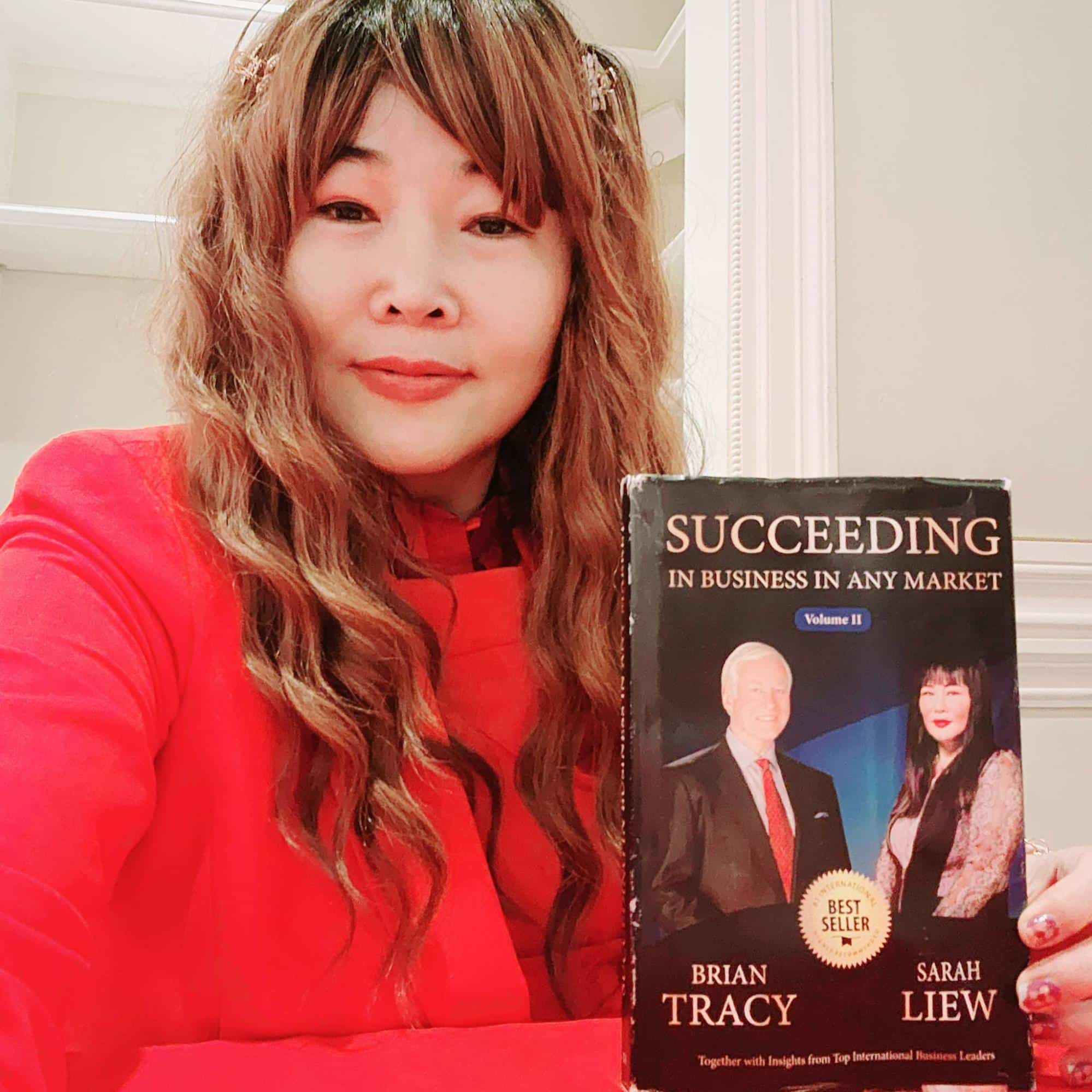By: Meridian Beverly Hills Investment & Legal Group
Organizational culture is a foundation that shapes everything from employee satisfaction to overall performance. In her book, The Future-Forward CEO: Embracing Change in the Digital Age, Dr. Sarah Sun Liew explores how leaders can use their influence to create a positive organizational culture. By fostering an environment of respect, collaboration, and innovation, leaders can enhance motivation and drive long-term success. This article delves into strategies for building a positive work culture through influence, emphasizing the importance of recognition, growth opportunities, and celebrating successes.
The Role of Influence in Shaping Organizational Culture

Influence is the capacity to guide others’ thoughts and behaviors through persuasion, example, and relationship-building rather than formal authority. Leaders who wield influence effectively set the tone for how employees interact, collaborate, and contribute to the company’s goals. Dr. Liew underscores that cultivating a positive culture goes beyond defining values; it requires actively demonstrating those values through daily actions and interactions.
Fostering a Culture of Respect
Respect is essential for a positive organizational culture. Leaders who prioritize respect create an environment where employees feel valued and heard. Here’s how leaders can use influence to foster a culture of respect:
- Model Respectful Behavior: Leaders set the standard for respectful behavior through their actions. This includes showing appreciation for others’ opinions, acknowledging contributions, and treating everyone with fairness and dignity. Dr. Liew emphasizes that leaders who consistently demonstrate respect inspire teams to follow suit, embedding respect into everyday interactions.
- Encourage Open Communication: Open communication fosters respect. Leaders should establish channels for employees to share opinions, concerns, and ideas freely. Actively listening to feedback shows employees their input matters and that leadership is committed to meeting their needs.
- Address Issues Promptly: Conflicts and issues are inevitable, but leaders should address them fairly and promptly. Dr. Liew notes that handling conflicts with integrity reinforces a culture of respect and prevents issues from escalating.
- Promote Inclusivity: Inclusivity means creating an environment where everyone feels welcome and valued. Leaders can encourage inclusivity by embracing diversity, valuing different perspectives, and working to eliminate biases. An inclusive culture enhances respect and collaboration, ensuring that everyone has a voice in the organization.
Cultivating a Collaborative Environment
Collaboration is another key to a positive organizational culture. Leaders who foster collaboration create an environment where teamwork and innovation can thrive. Here’s how leaders can encourage collaboration:
- Encourage Teamwork: Leaders should promote teamwork by encouraging cross-functional collaboration and team-building activities. Dr. Liew highlights that fostering a collaborative mindset helps break down silos and improves problem-solving.
- Facilitate Knowledge Sharing: Leaders should create opportunities for knowledge sharing through meetings, workshops, or internal platforms. By facilitating knowledge exchange, leaders build a culture of continuous learning and support.
- Support Collaborative Tools and Technologies: Collaboration tools are essential for teamwork, especially in remote or hybrid environments. Leaders should invest in tools that facilitate communication, such as project management software and messaging platforms. Dr. Liew points out that such tools enable teams to stay connected and work efficiently.
- Recognize and Reward Collaborative Efforts: Recognizing collaborative efforts reinforces the importance of teamwork. Leaders can acknowledge collaborative achievements through awards, public recognition, or incentives, fostering a positive culture of teamwork and mutual support.
Fostering Innovation Through Influence

Innovation is essential for growth and competitiveness. Leaders who use their influence to foster innovation create an environment where creativity and experimentation are encouraged. Here’s how leaders can promote innovation:
- Encourage Experimentation: Leaders should create a safe environment where employees feel comfortable exploring new ideas. This involves fostering a mindset of experimentation and encouraging learning from mistakes. Dr. Liew emphasizes that a culture of experimentation fosters innovation by allowing employees to develop new solutions.
- Provide Resources and Support: Innovation requires support. Leaders should ensure employees have the tools, training, and resources needed to pursue new ideas, from technology investments to professional development opportunities.
- Celebrate Innovative Achievements: Recognizing achievements in innovation reinforces the value of creativity. Leaders can celebrate innovations through awards, public acknowledgment, or other recognition, motivating employees to pursue creative solutions and contribute to a culture of experimentation.
- Promote a Growth Mindset: A growth mindset views challenges as opportunities for learning and growth. Leaders should encourage employees to embrace challenges, seek feedback, and improve their skills. Dr. Liew highlights that a growth mindset supports innovation by fostering resilience and adaptability.
The Importance of Recognition and Growth Opportunities
Recognition and growth opportunities are crucial for a positive organizational culture. Leaders who use their influence to provide these elements create a motivated and engaged workforce. Here’s how leaders can incorporate recognition and growth into their culture:
- Implement a Recognition Program: A structured recognition program ensures that employees are consistently acknowledged for their contributions. Dr. Liew suggests that a well-designed recognition program boosts morale, enhances job satisfaction, and reinforces positive behaviors.
- Offer Professional Development Opportunities: Offering training and career development resources supports employee growth. Leaders who invest in professional development demonstrate commitment to employees’ long-term success, contributing to a positive work culture.
- Create Career Advancement Pathways: Leaders should work with employees to identify career goals and develop plans to achieve them. Providing advancement opportunities motivates employees to excel and fosters a culture of growth and development.
- Celebrate Successes: Recognizing achievements, both big and small, reinforces positivity within the organization. Taking time to celebrate milestones and individual or team successes creates a sense of accomplishment and nurtures a culture of appreciation.
Dr. Sarah Sun Liew’s Insights
In The Future-Forward CEO, Dr. Sarah Sun Liew provides practical insights on using influence to create a positive organizational culture. She emphasizes that influence, when applied effectively, can shape an environment where respect, collaboration, and innovation thrive. Her work highlights the idea that a leader’s influence can be a transformative tool for guiding behaviors and attitudes that contribute to overall success.
Dr. Liew’s perspectives on leadership, culture, and influence have garnered recognition in over 500 global publications, including The Wall Street Journal, Yahoo Finance, and Fox News. Her insights resonate with audiences looking for actionable strategies to create meaningful change within their organizations.
In recognition of her impact, Dr. Liew was awarded the Menorah of Peace Award from The Institute of Noahide Code in 2023 for her commitment to promoting peace and ethical leadership. Additionally, she was named one of the “Top 15 Entrepreneurs Shaping the Business World” by International Business Times, honoring her accomplishments in real estate and financial technology.
Media Presence and Engagement
Beyond her written work, Dr. Liew frequently collaborates with major media outlets to share her message of positive leadership. Through media presence with CEO Weekly, Los Angeles Wire, and Voyage New York, she reaches a global audience, inspiring leaders to cultivate inclusive, innovative, and respectful organizational cultures. These media engagements showcase her dedication to promoting values-driven leadership across diverse industries.
Conclusion
In The Future-Forward CEO: Embracing Change in the Digital Age, Dr. Sarah Sun Liew highlights the transformative power of influence in shaping organizational culture. Leaders who use their influence to foster respect, collaboration, and innovation can create a positive work environment that motivates employees and drives organizational success.
By using influence to build a culture that values respect, encourages teamwork, supports innovation, and provides recognition and growth opportunities, leaders can enhance employee engagement, boost performance, and achieve long-term goals. In today’s complex and evolving workplace, leveraging influence to shape a positive organizational culture is essential for achieving sustainable growth and fostering a thriving environment.
Published by: Holy Minoza












